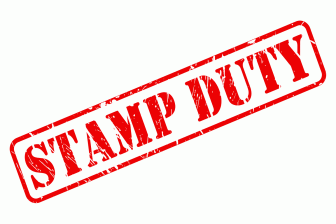 Fresh reports suggesting that stamp duty exemptions will end in the upcoming Autumn Budget have been met with a negative response from the property industry.
Fresh reports suggesting that stamp duty exemptions will end in the upcoming Autumn Budget have been met with a negative response from the property industry.
Home buyers will be left paying up to an additional £2,500 in stamp duty as a result of the move to let a temporary hike in the exemption threshold end in March. This had seen the nil-rate threshold for first-time buyers increase from £300,000 to £450,000 under former prime minister Liz Truss, and from £125,000 to £250,000 for movers.
According to The Times, chancellor Rachel Reeves will not extend the scheme, meaning buyers will go back to paying stamp duty based on the original thresholds. Some £1.8bn is expected to be raised by 2030 through the move, which will reportedly be firmed up in the October 30 Budget.
Rightmove’s Tim Bannister said: “The rumours that “nil rate” and first-time buyer stamp duty thresholds will indeed be reverting to previous levels as of March 2025, rather than be held at their current rates, will no doubt be seen as an unwelcome additional cost by many buyers looking to make their move in 2025 – and potentially to those currently in the process.
“With the threshold for the nil rate, the rate at which no stamp duty is charged for home-movers, due to fall from £250,000 to £125,000, anyone purchasing a property over this amount could face paying up to £2,500 more in stamp duty land tax. Meanwhile, the threshold rate at which first-time buyers do not pay stamp duty is likely to fall from £425,000 to £300,000. If a first-time buyer buys a property at the average UK price of £370,759 they will pay £3,538 in stamp duty from March 2025, compared with nothing now.
“With the current threshold of £425,000 for first-time buyers, 58% of properties are exempt from stamp duty. If the threshold is reduced to £300,000, only 37% of homes would remain stamp duty-free, a 21% reduction. This will particularly affect buyers in regions with higher property prices, such as London and the South East.”
Bannister pointed to the fact that first-time buyers are already under considerable financial pressure, with monthly mortgage payments having risen by over 60% in the past five years, adding an extra £350 per month on average.
“Although mortgage rates have eased slightly, they remain high compared to previous years, and house prices continue to increase in many areas,” he continued.
Bannister believes that we are likely to see a rush to complete property transactions before the stamp duty changes come into effect, as buyers look to avoid the additional costs, meaning a busier Christmas and New Year for the housing market.
He added: “The average time it takes to complete a sale from the moment an offer is accepted is currently 152 days. Coincidentally, this is the same number of days between the Budget on 30th October 2024, and the proposed stamp duty deadline on 31st March 2025. This means that, on average, buyers that agree to a purchase after the Budget may not complete in time unless all involved in the transaction are working together to speed up the process.”

Shares in major housebuilders fell on Friday on news reports stamp duty exemptions would likely be ended by the chancellor.
Terry Woodley, MD of Development Finance at Shawbrook, commented: “Since first-time buyers make up the majority of new build home purchases, this could significantly affect the progress of the government’s ambitious housebuilding plans. The reality is that the targets are going to require a multi-pronged, collaborative approach from various stakeholders.
“Large scale housebuilders will not be able to achieve the targets alone, and making better use of existing land and properties is an important component in addressing the UK’s housing supply issues. SME developers have a key role to play in providing suitable housing stock.
“Taking away incentives, such as the stamp duty threshold, could deter developers from considering future development schemes further properties to their portfolios, which will ultimately lead to a reduced supply of quality housing – undermining the Government’s own targets.”
Kirstie Allsopp, well-known property commentator, called the levy “a monster” and said the changes would cause “chaos” while failing to “claw back any money” for the government
She told Times Radio: “It’s become so complicated that I can no longer tell anyone what they would be paying in stamp duty. I have to go on to the stamp duty calculator and calculate it with the government calculator per property and I have to put in all the different circumstances. Stamp duty has become a monster.”
“It won’t claw back any money. Stamp duty is a dead tax,” she added.


152 days from offer to completion (though exchange would be a better milestone) shows that it will be crucial to choose a conveyancer who is expertly able to handle a very prompt exchange of contracts.
And NEVER pay for quicker conveyancing. That is a red flag.
Choose a solicitor firm who demonstrate and promote their expertly prompt pace.
You must be logged in to like or dislike this comments.
Click to login
Don't have an account? Click here to register
There is at least one factory outfit now telling its clients that the average time for a transaction is thirty weeks. The massive irony being of course that the reason for the huge timeframe is their very existence in the chain! Simply appalling, so their clients instructing now are actually already too late to stand a chance with this deadline.
Presumably though the Estate Agent taking those referral fees to pass people on will have neglected to pass on that important piece of information?
You must be logged in to like or dislike this comments.
Click to login
Don't have an account? Click here to register
You can trust this Government faced with an opportunity to improve things, will do the polar opposite. We are being run by ‘student union’ Politicians.
You must be logged in to like or dislike this comments.
Click to login
Don't have an account? Click here to register